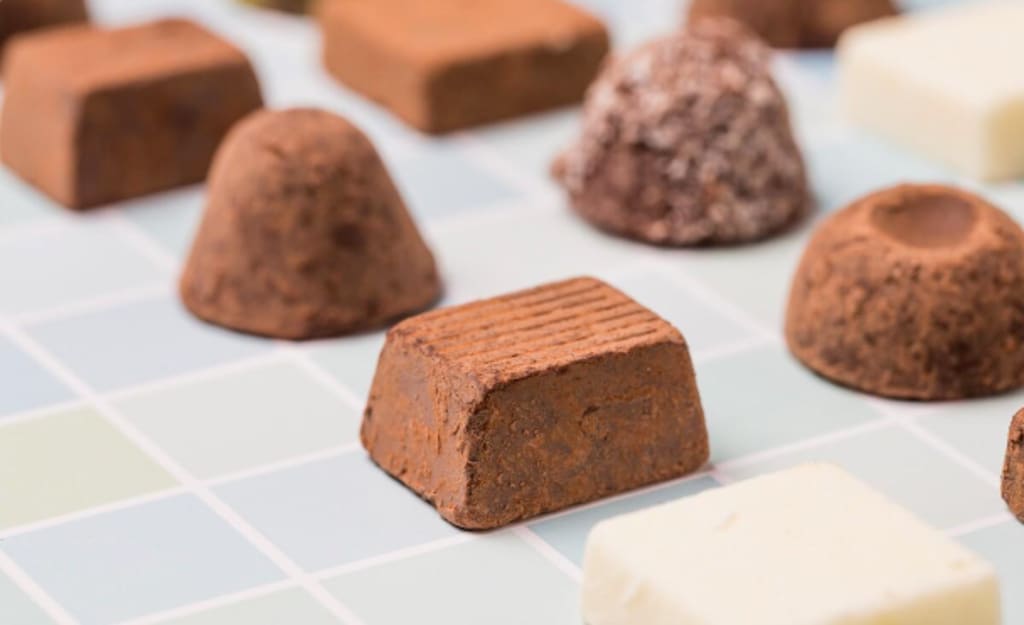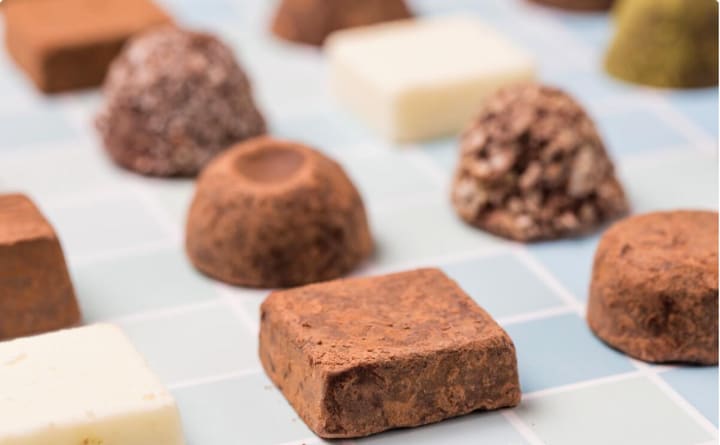Is dark chocolate really healthy?
The health benefits of dark chocolate

You may think of dark chocolate as healthy food, but is it? Before you take a bite of that chocolate, learn why dark chocolate may not deserve the health halo it has been wearing.
Chocolate may not have the same nutritional profile as kale, but it's still touted as a healthy food because of the antioxidants it contains. And there's data to suggest that chocolate, especially dark chocolate, can benefit the body and brain. But before you think it's like pre-Halloween and you can license the use of dark chocolate mini Milkyways scarves, there are some warnings.
The truth about dark chocolate and the health benefits it brings
People who did not eat dark chocolate daily were 57% less likely to experience depressive symptoms compared to those who did not eat chocolate. The risk of Alzheimer's and dementia was also lowest among 2,800 people over the age of 60 who ate and consumed the most flavonoid-rich foods, such as dark chocolate, if adults consumed cocoa flavanols (a specific phytonutrient found in chocolate) before testing. Lowering the risk of regular chocolate consumption in a healthy population.
So, why would you not eat dark chocolate? It turns out that while it's true that dark chocolate is healthier than a piece of chocolate cake or a bowl of chocolate ice cream, there is a dark side to one of the world's most popular so-called healthy sweets. Here's what you need to know so you can make an informed decision about whether or not to eat chocolate for health reasons.
The health benefits of dark chocolate compared to white and milk chocolate

The main ingredient in dark chocolate is cocoa, which is the original form of chocolate. The use of cocoa for health improvement dates back to 600 B.C. Pure cocoa is nutrient-rich, containing fiber, minerals, and flavonoids. "All of these will benefit the health of the heart and circulatory system."
Compare dark chocolate, which is high in cocoa, to white and milk chocolate, which contain little or no nutrients, and you'll see that milk and white chocolate not only contain less cocoa beans than dark chocolate but also much higher levels of sugar, for example, as well as dairy products (such as liquid milk, powdered or condensed milk) and other ingredients (such as soy lecithin). "This increases the sugar and fat content, but usually makes these chocolates more palatable, especially for people who don't like the bitter taste of dark chocolate."
White chocolate is a poor choice of words. By culinary standards, it is considered chocolate, but technically it is not chocolate because it does not contain cocoa nibs or cocoa powder. Instead, it's a mixture of cocoa butter, sugar, and dairy products.
Is dark chocolate healthy?
It is controversial whether chocolate should be touted as a "health" food. Although studies have shown that dark chocolate can provide some benefits, dark chocolate is not advocated.
"There is an association between cocoa flavanols or chocolate and specific health outcomes, but this association does not imply a cause-and-effect relationship," said the study.
The light chocolate study was also conducted on the general population or people who do not follow a plant-based diet, so it may only be relevant to people consuming the standard American diet. "When people eat only (fried) potatoes and tomatoes, any food that is higher in phytonutrients (such as chocolate) may be beneficial to health." She noted that similar results were seen in studies of olive oil and red wine. Chocolate is rich in unhealthy saturated fats, stimulants, and sugar.
Saturated fats in dark chocolate
When it comes to saturated fats, it is recommended that you keep your intake below five percent of your total daily calories. "Saturated fats not only increase LDL ("bad") cholesterol, they also induce insulin resistance, which can lead to the onset of many chronic diseases such as obesity, metabolic syndrome, type 2 diabetes, non-alcoholic liver disease, and cardiovascular disease.
However, if you eat chocolate, keeping the saturated fat content below 5% can be difficult. That's because chocolate, even cocoa nibs, are rich in saturated fat, and a 1-ounce square of 70 to 85 percent dark chocolate contains 12 grams of fat.
If you like dark chocolate, you are likely to reach the maximum saturated fat, which means you have to watch yourself carefully throughout the day to not eat other sources of saturated fat, adding that there are better sources of whole foods, such as Massive Seeds and flaxseed, which have higher sugar content and no added sugar and no stimulants, namely caffeine.
Caffeine in dark chocolate
The sources of caffeine that get the most attention are coffee and energy drinks. Almost no one mentions the caffeine in chocolate - "One ounce of dark chocolate contains about one-eighth the amount of coffee in a cup," Schaeffer says - but it's there, along with another stimulant called theobromine.
However, caffeine is a drug that has a direct effect on the way you sleep, preventing people from falling asleep easily and/or falling asleep peacefully throughout the night. The theobromine in cocoa nibs and cocoa powder can also negatively affect sleep, and sleep disorders can lead to health problems.
"The severity of someone's sleep is associated with overweight and obesity and the development of diseases such as type 2 diabetes and dementia," he said, adding that dark chocolate has the highest caffeine content than other types. The higher the quality of the chocolate, the higher the caffeine content. Worse? Age and genetic mutations in about half of the population are two factors that can lead to slower caffeine clearance in the body.
Caffeine also takes calcium out of the diet. So, too, do animal protein and sodium; the more of these three substances you consume in your diet, the more calcium you will remove from your kidneys. "This is a problem for women who are concerned about developing osteoporosis after menopause."
Dark chocolate candy
Now added to sugar, the World Health Organization recommends limiting the amount of sugar to less than five percent of total calories in a day. Is there a problem with adding sugar? Shaffer says, "Adding too much sugar to your diet is a risk factor for a variety of health problems, including unwanted weight gain, inflammation, high cholesterol, high blood pressure, diabetes, and more."
While the added sugar in chocolate is of little concern compared to other ingredients, it depends on whether dark chocolate fits into your diet. If you use it in place of dessert, "you may be eating less sugar than before." However, if you are only adding chocolate to your diet because you are eating healthy and not eliminating anything else, then added sugar becomes an issue.
Is dark chocolate healthy?
Now that you know the conundrum surrounding chocolate, you have to answer that question for yourself. If you're eating chocolate because of its health halo, it may be for the wrong reasons. "I put dark chocolate and red wine in the same category when it comes to health," says Schaeffer. "There are nuances that make red wine a better choice than white wine, beer, or liquor, but to say that dark chocolate is healthy in the same way we interpret sweet potatoes or beans as healthy is incorrect."
Each food should be evaluated in a similar selection. However, if you choose dark chocolate because you like it and want to replace it with other low-nutrient, high-added-sugar foods you are eating and curb the craving for sweetness to prevent further sweetening, then it can be a wise choice.
Also, people are encouraged to consider chocolate as a snack, a diet that may not work for your diet. As long as you know the risks of consuming it, you can compare it to drinking red wine, despite the health risks," she said.
In addition, many other plant-based foods have higher phytonutrient content and higher antioxidant capacity than cocoa or chocolate. Olivella says, "No one needs to add cocoa or chocolate to their diet to benefit from the health-promoting properties of various phytonutrients."
What to look for in dark chocolate
However, if you indulge in dark chocolate, keep a few guidelines in mind. First, look for food with a high cocoa content (usually 70 percent or higher) and no added dairy, soy lecithin, sugar alcohols, or palm oil, and, in addition, look for foods with 10 grams or less of added sugar.
About the Creator
DRaudt Easlick
I never think about the future. Because it comes fast enough.
Enjoyed the story? Support the Creator.
Subscribe for free to receive all their stories in your feed. You could also pledge your support or give them a one-off tip, letting them know you appreciate their work.






Comments
There are no comments for this story
Be the first to respond and start the conversation.